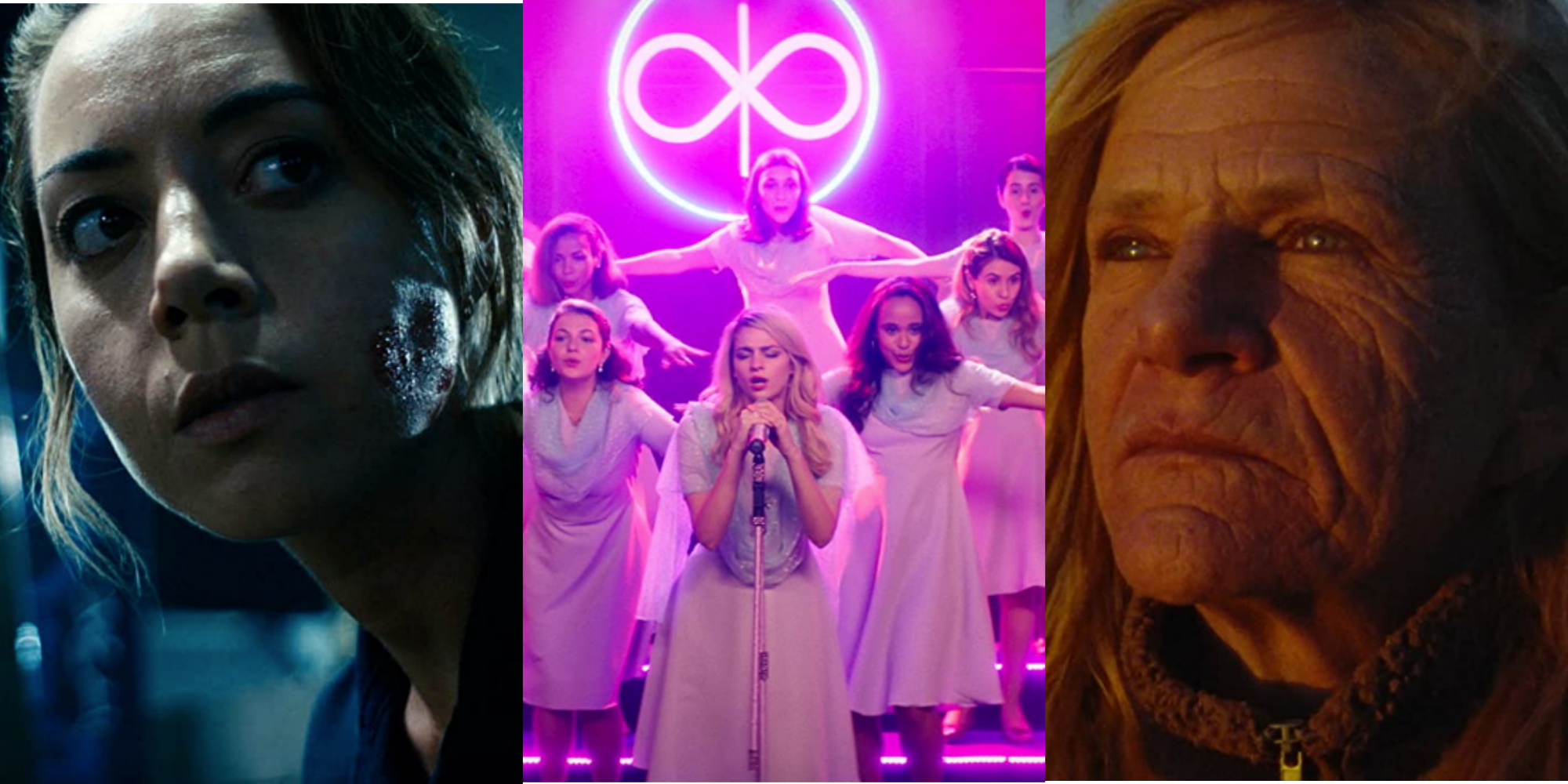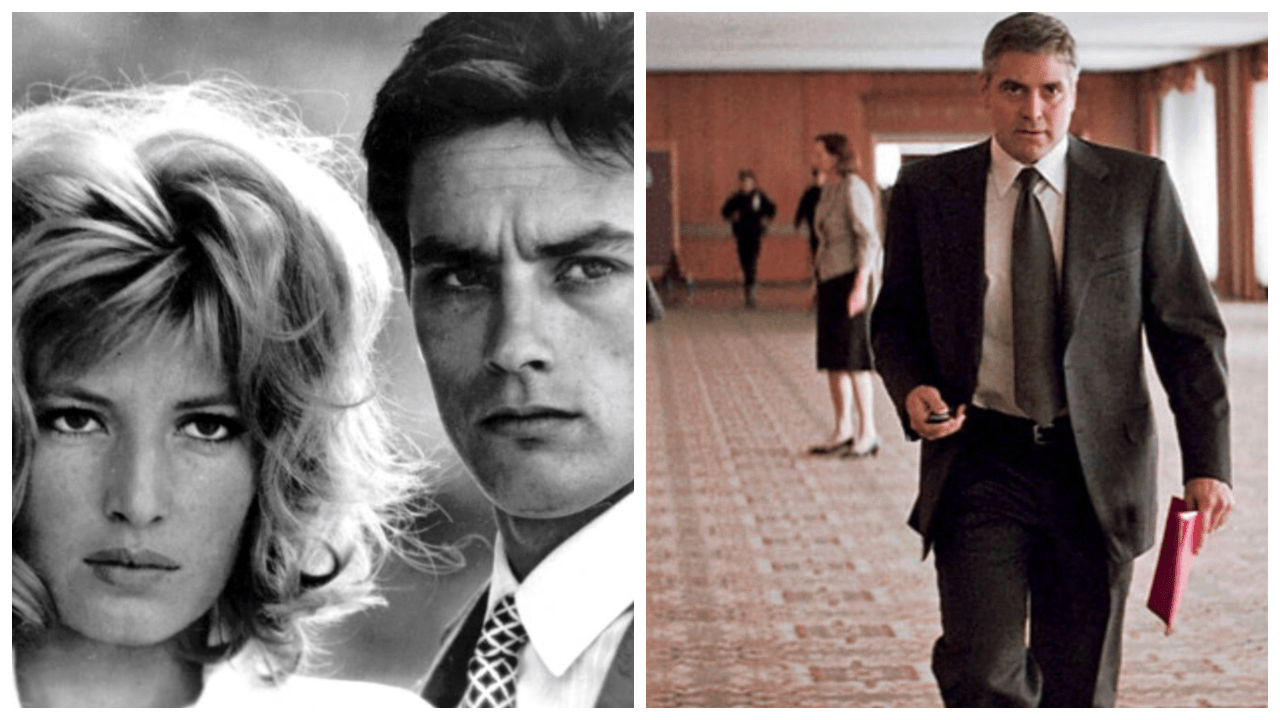When I was younger—PLEASE DON’T FALL ASLEEP I’M MAKING A POINT—I worried way too much about whether a movie “worked” “as a whole.” “I was with it till the ending,” I’d sigh with callow exasperation at yet another unstuck landing.
Nowadays my brain is so full there are times I can’t even remember if I saw a movie or not (this fate awaits you too, children), and I’m less of a stickler for perfection. Sure formal and structural and narrative accomplishment matter, but they’re often not what lingers after the lights go up. I’ve learned to savor the images and sensations that remain with me of a movie after the initial impression passes.
Now usually, I type out these reviews shortly after a screening, while those impressions are still fresh. But it just so happens that I saw three movies released out this week months back, during the MSP Film Festival. So as a fun little experiment, rather than rewatching, I allowed myself to be guided by nothing more than my memories and my barely legible notes.
A phalanx of girls in smooth white masks stalk the streets of Brazil each night, cornering “sinful” women, battering them until they submit to Jesus, and recording viral videos of their forced confessions. By day, those same righteous punishers are perky style influencers, using YouTube to advise their followers on the holiest selfie angles and generally idealizing Christian womanhood.
This is the world of Anita Rocha da Silveira’s Medusa, a cross between Mean Girls and A Clockwork Orange that feels all too credible as Bolsonaro’s Brazil faces an evangelical right-wing surge, as well as a spike in woman-on-woman violence. But Da Silveira gets that a good dystopia doesn’t just exaggerate the pitfalls of our current society; it explores the logic of domination that powers it. That’s the difference between a nightmare and a vision.
At the center of Medusa is the relationship between two of the influencer/enforcers, Mari (Mariana Oliveira) and Michele (Lara Tremouroux), neither of whom is as perfect as she seems. After Mari’s face is scarred during one of the crew’s purity patrols, she loses her job at a plastic surgeon’s office and instead goes to work in a medical clinic. Here she is determined to find Melissa, the most sinful woman who ever lived, who was set ablaze as punishment for her sins, and who no one has seen since.
Da Silviera gets that evangelical culture thrives on adapting pop culture to its own ends, that yesterday's sins are sublimated into tomorrow’s religious rituals. There’s also a whole cadre of men who harden their bodies in the service of the Lord, like a more threatening version of Kelvin Gemstone’s God Squad. The girls also perform as Michele and the Treasures, a saccharine girl group with apocalyptic messages. And of course at the center of it all is a fascination with and hatred of beauty; its power must be harnessed but also contained.
Cinematographer João Atala douses da Silviera’s theocratic Brazil in harsh but seductive neon greens and pinks, creating a world that thrums with the erotics of sexual repression as it examines how women wield power against each other in systems that subordinate them. Overloaded with ideas and underplenished with narrative, Medusa wanders aplenty mid-film, but its images, its sensibility, and its tone have stuck with me.
If Medusa is overloaded with ideas, Emily the Criminal has the opposite problem: It’s got a sharp premise and it’s sticking to it. Aubrey Plaza is a debt-wracked former art student hobbled professionally by a criminal record who’s floundering until she finds she her true calling: credit card fraud. As Emily dives deeper into the criminal world, her actions seem truer to herself, and her violent instincts surface. She’s more at home in this new life.
Emily’s descent (rise?) all starts simply enough. A co-worker at her catering job asks if she wants to make some easy money, and she slips into a backroom seminar on “dummy shopping” run by two Lebanese brothers, one sweet, one villainous. Her first task is easy, and she aces it: Walk into a big box store with stolen credit card info and walk out with a giant TV, which her bosses will then flip. Emily’s hooked.
None of this would work without Plaza. Her gaze withers all bullshit, and combines immediacy and distance. And her alluring weirdness takes a dangerous turn here: Where her peers have sought to dodge the “unlikeable female character” trope, she achieves the antihero status that male stars assume as their birthright. (She also co-produced Emily, which shows an awareness of her own strengths.) She even turns in a passably Jersey characterization without gabagooling up the works.
As Emily finds herself caught between her handler-turned-lover Youcef (Theo Rossi) and his cut throat brother Khalil (Jonathan Avigdori), there’s a decent amount of tension and double-crossing, and some verite grit to its depiction of the skeevier side of Los Angeles. But for all its action, there’s something inert about Emily the Criminal. While there’s some interesting character-based irony to be plumbed here, John Patton Ford, directing his debut feature long after conquering Sundance in 2010 with his short Patrol, instead treats Emily as a social condition, a type rather than an individual. That’s always the danger where the subtext becomes the text.
Because if Emily may not be “likable” in the screenwriting sense of the word, she is still an attractive woman with a middle-class background. The film is kind of an extended special pleading: We know good people slip up, but this shouldn’t be happening to her, a decent kid who made a few bad decisions. Unwilling to scratch the surface of this double standard, Emily the Criminal plays it safe at its bloodiest.
You don’t want to get too fussy about appreciating a small movie like A Love Song. You start saying criticky things like “a miracle of intimacy” or musing on “the magic of human connection.” (I made those up, but I wouldn’t be surprised if they turned out to be accidental paraphrases of some positive reviews.) That takes all the fun out of appreciating the film’s modesty and treats its restraint as a kind of mannered pretension. Worse still, you could pat yourself on the back for watching a quiet little movie, as though a lack of explosions is in itself a cinematic virtue.
But a small movie it is. Faye (Dale Dickey) is set up in a lakeside camper in the sort of vast Western vista location scouts fantasize about. Here she dines on fresh crawdad and coffee, learns bird calls, listens to bluegrass, tinkers, and waits. Mostly, she waits. The man she turns out to be waiting for is Lito (Wes Studi), who is certainly worth waiting for. They were high school classmates, not quite childhood sweethearts, and in some ways it’s like they’re meeting for the first time.
And that’s it. Other characters pop by—a Coens-y girl and her silent brothers who want to bury their dad, two women camping nearby hesitating on the threshold of marriage—but this is a two-person drama, and even “drama” feels like too freighted a word. A Love Song works because director Max Walker-Silverman is himself not fussy. He choreographs Faye’s early rituals with care, then sits back and lets what little action there is unfold. The camera is restrained and matter-of-fact about the natural beauty it captures, and so the weathered faces of Dickey and Studi, remarkably creased emotional roadmaps, upstage the landscape around them.
Medusa opens this weekend at The Main. Emily the Criminal opens this weekend in area theaters. A Love Song opens this weekend at the Lagoon.






